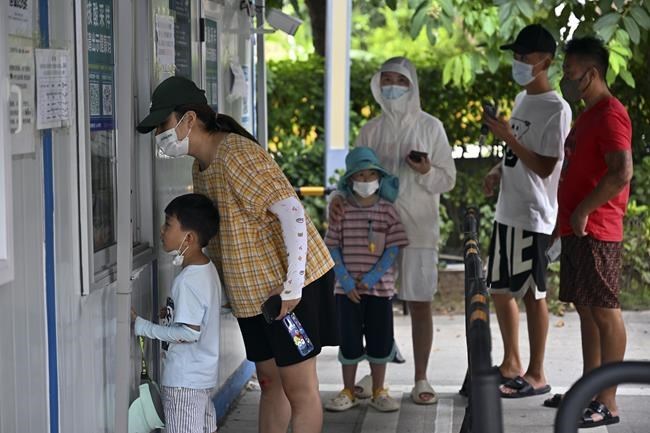BEIJING (AP) — The capital of China's Hainan province has locked down its residents for 13 hours on Monday as a COVID-19 outbreak grows on the tropical island during the summer school holidays.
The temporary lockdown of Haikou city from 7 a.m. to 8 p.m. follows an ongoing and indefinite lockdown of the beach resort of Sanya since Saturday that is confining vacationers to their hotels for a week. Four other cities and four counties in Hainan also started lockdowns of two days or more on Sunday and Monday.
More than 470 new cases were recorded in the province on Sunday, of which 245 did not show symptoms. Overall, China reported more than 760 new daily cases, the National Health Commission said Monday.
Some 80,000 tourists have reportedly been stranded by the lockdown in Sanya. Those wanting to depart have to test negative five times over seven days.
China has stuck steadfastly to a “zero-COVID” policy, despite the economic and social costs. It has credited that approach with keeping hospitalization and death rates lower than in other countries that have opened up amid high vaccination rates and more effective treatments.
Hong Kong, a semi-autonomous Chinese city, announced Monday that it would reduce a mandatory hotel quarantine for overseas arrivals to three days from the current one week. The new policy takes effect Friday.
The Associated Press



